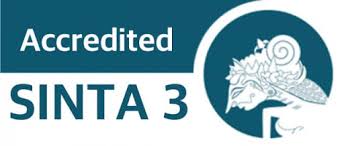Penerapan Metode Card Sort Pada Pembelajaran Fiqh Materi Sholat Fardhu Untuk Meningkatkan Motivasi Belajar Siswa Kelas II MI Miftahul Ulum Cempokolimo
DOI:
https://doi.org/10.54069/attadrib.v3i1.170Keywords:
Card Sort Method, Fiqh lesson, Learning Motivation, Fard PrayerAbstract
This article aims to increase the motivation to learn Fiqh for class II Miftahul Ulumu Cempoko Limo, in learning Fiqh using the Card Sort method. this article is a Classroom Action Research. The subjects of this study were 20 grade II students of Miftahul Ulumu Cempoko Limo. The results of the article showed that there was an increase from cycle I to cycle II. The implementation of fiqh learning using the Card Sort method in order to increase students' learning motivation is carried out with the following learning steps: (1) Studying the concept of a subject matter, (2) Matching the material on paper A to paper B, (3) Discussing the results of compiling , and (4) Group presentation in front of the class. The average cycle motivation results increased, the average in the first cycle was 70 increased to 83 in the second cycle and the results of the learning motivation questionnaire in the first cycle was 66% with the category once enough to 86% with the very good category in the second cycle. So it can be concluded that the use of the Card Sort method can increase students' learning motivation.
Downloads
References
Ansori, M. (2020). Pengembangan Kurikulum Madrasah Di Pesantren. Munaddhomah: Jurnal Manajemen Pendidikan Islam, 1(1), 41–50. https://doi.org/10.31538/munaddhomah.v1i1.32
Bahri, S., & Arafah, N. (2020). Analisis Manajemen SDM Dalam Mengembangkan Strategi Pembelajaran Di Era New Normal. Tafkir: Interdisciplinary Journal of Islamic Education, 1(1), 20–40. https://doi.org/10.31538/tijie.v1i1.2
Kartiko, A., & Kurniwan, E. (2018). Metode Bercerita Dengan Teknik Role Playing untuk Menumbuhkan Akhlak Mulia. Nazhruna: Jurnal Pendidikan Islam, 1(2), 201–222. https://doi.org/10.31538/nzh.v1i2.52
Ma`arif, M. A. (2019). Internalisasi Nilai Multikulutural Dalam Mengembangkan Sikap Toleransi ( Studi Di Di Pesantren Mahasiswa Universitas Islam Malang). Nazhruna: Jurnal Pendidikan Islam, 2(1). https://doi.org/10.31538/nzh.v2i1.179
Ma`arif, M. A., & Rofiq, M. H. (2018). The Role of Islamic Education Teachers in Improving the Character of Nationalism in Boarding School. EDUKASI: Jurnal Pendidikan Islam, 6(1), 064–078. https://doi.org/10.5281/edukasi.v6i1.323
Nihayah, I. (2018). Pengembangan Kurikulum Bidang Studi Pendidikan Agama Islam Pada Program Akselerasi di SMAN 5 Surabaya. Nazhruna: Jurnal Pendidikan Islam, 1(2), 312–323. https://doi.org/10.31538/nzh.v1i2.88
Permadi, B. A., & Adityawati, I. A. (2018). Pengembangan Bahan Ajar Tematik Berbasis Islam & Kearifan Lokal Kelas Iv Min Seduri & Mis Nurul Amal Kabupaten Mojokerto. Nazhruna: Jurnal Pendidikan Islam, 1(1), 122–138. https://doi.org/10.31538/nzh.v1i1.61
Rizali, A. (2009). Dari guru konvensional menuju guru profesional. Grasindo.
Rony, & Jariyah, S. A. (2020). Urgensi Pendidikan Karakter dalam Membentuk Akhlak Peserta Didik. Tafkir: Interdisciplinary Journal of Islamic Education, 1(1), 79–100. https://doi.org/10.31538/tijie.v1i1.18
Rosyad, A. M., & Maarif, M. A. (2020). Paradigma Pendidikan Demokrasi Dan Pendidikan Islam Dalam Menghadapi Tantangan Globalisasi Di Indonesia. Nazhruna: Jurnal Pendidikan Islam, 3(1), 75–99. https://doi.org/10.31538/nzh.v3i1.491
Syaharuddin, S. (2020). Pembelajaran Masa Pandemi: Dari Konvensional Ke Daring. PEMBELAJARAN MASA PANDEMI: DARI KONVENSIONAL KE DARING.
Tilaar, H. A. R. (2012). Perubahan sosial dan pendidikan: Pengantar pedagogik transformatif untuk Indonesia. Rineka Cipta.
Zulaikhah, D., Sirojuddin, A., & Aprilianto, A. (2020). Analisis Pembelajaran Pendidikan Agama Islam Kurikulum 2013 Bagi Anak Berkebutuhan Khusus. Tafkir: Interdisciplinary Journal of Islamic Education, 1(1), 54–71. https://pasca.jurnalikhac.ac.id/index.php/tijie/article/view/6
Downloads
Published
Versions
- 2023-02-22 (2)
- 2020-04-25 (1)
How to Cite
Issue
Section
License
Copyright (c) 2020 Muhammad Husnur Rofiq, Niva Kurnia, Akhmad Fauzi

This work is licensed under a Creative Commons Attribution-ShareAlike 4.0 International License.





